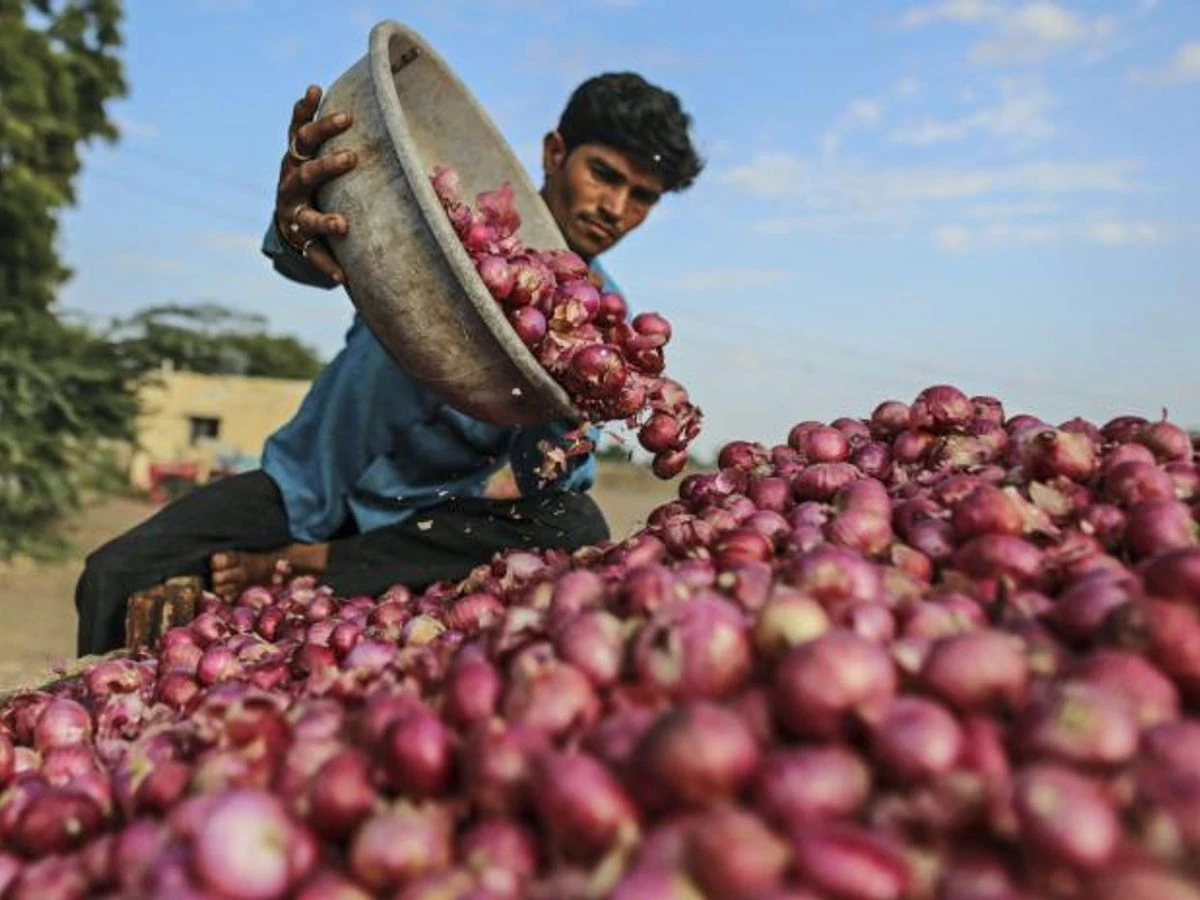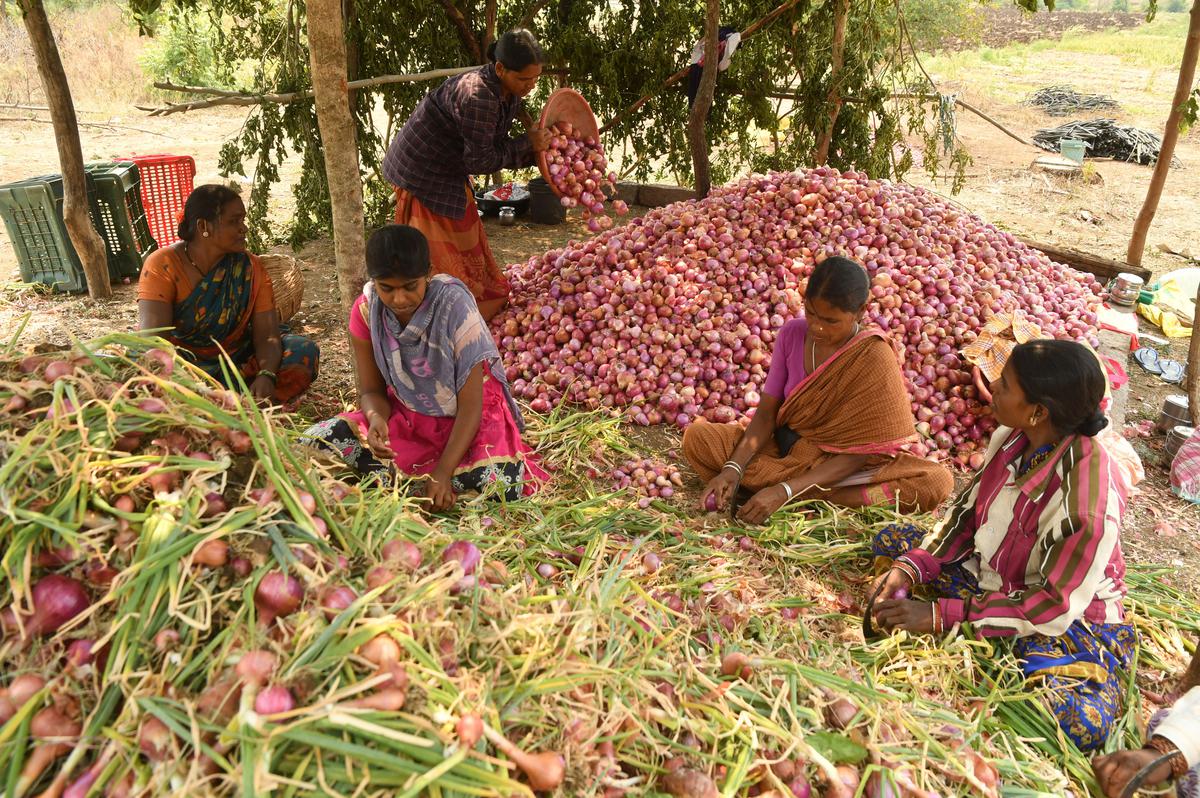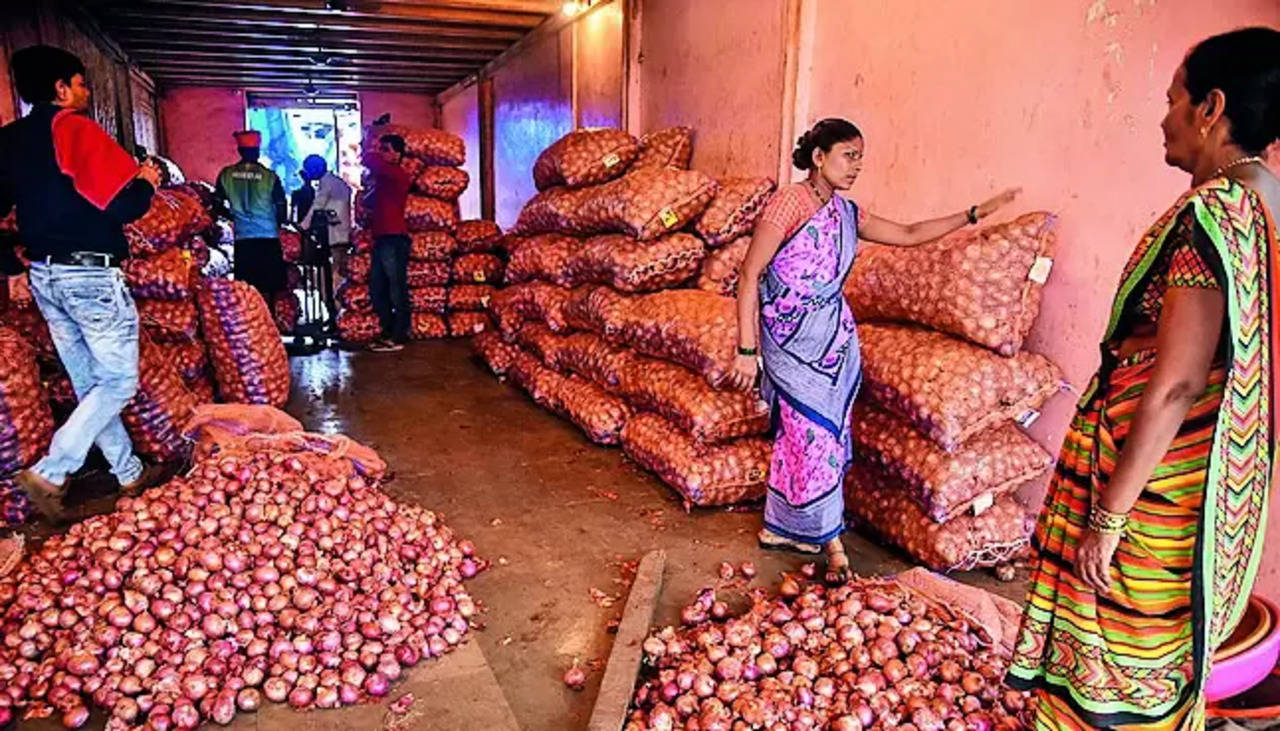NCCF and NAFED Sell Onions from Buffer on e-NAM; Turnover Rises to Rs 24,717 Crore in Apr-Aug

NCCF and NAFED Sell Onions from Buffer on e-NAM; Turnover Rises to Rs 24,717 Crore in Apr-Aug
The weighted average yield on commercial papers decreased from 7.90% in March to 7.20% in July despite the fact that the policy rate remained stable throughout that time, demand was strong, and liquidity tightened.
“Overall, our calculations show that the reduced CP prices have allowed the corporates to save up to Rs 5,000 crore on an annualised basis. The debt service ratio has improved significantly as a result, according to the study.
)
Anice reported that the Maharashtra state government has spared the purchasers from paying the mandi charge in exchange for the onion being sold on e-NAM from its NCCF stock.
To stop a price increase, the government recently ordered Nafed and NCCF to sell onions on the open market from their buffer of 0.3 MT. In an effort to aid farmers who were suffering from the onerous 40% export duty on the crop, it also instructed two agencies to purchase 0.2 million tonne of onion from growers at the highest price ever of Rs 2410 per quintal.
In the meantime, e-NAM’s total revenue from April through August of 2023–24 exceeded Rs 24, 717 crore, which is 2% more than the previous year.
Inter-mandi commerce on e-NAM increased by 301% over the first five months of the current fiscal year, reaching Rs 593 crore, compared to the same time the year before.
Although the amount of inter-mandi commerce is still a small percentage of the total turnover of e-NAM, an official from the agricultural ministry said it shows a steady transition to the digital platform, which farmers are using for improved price discovery.

Since the start of the year, interstate trade, which had been declining until a year ago, has begun to increase.
Compared to the prior fiscal year, the e-NAM trade’s revenue increased by 32% to Rs 74,656 crore in 2022–23.
Farmers from Uttar Pradesh, Kashmir, Maharashtra, Rajasthan, and Uttarakhand have been selling commodities like potatoes, apples, mustard, ragi, silk cocoons, chana, soyabeans, and jeera to buyers in Kerala, Odisha, Jharkhand, Madhya Pradesh, and Tamil Nadu since the beginning of the year using the e-NAM platform.
For farmers to sell their goods online, the agricultural ministry has approved the integration of 25 additional mandis with e-NAM.
Maharashtra (15), Jammu & Kashmir (6), and Uttarakhand (4) are integrating the new mandi. 1386 mandis would be utilising the e-NAM platform altogether after this integration.
The e-NAM platform is currently integrated with 1,361 mandis in 27 states and Union Territories. Additionally, 3043 FPOs, 0.24 million dealers, 17.96 million farmers, and almost 0.1 million commission agents are enrolled with e-NAM.
According to sources, there are about 7000 mandis in the nation, and the mandi boards of the individual states recommended that the market for agricultural goods join e-NAM.209 agricultural, horticultural, and other commodities that have been notified by the relevant state governments are presently available for online trade on the e-NAM platform.

The National Cooperative Consumer’s Federation (NCCF) and the National Agricultural Cooperative Marketing Federation of India Ltd. (NAFED) have been instrumental in India’s efforts to stabilize the onion market and ensure fair prices for farmers and consumers. Their collaboration to sell onions from the buffer stock on the Electronic National Agriculture Market (e-NAM) platform has led to a significant increase in turnover, benefitting both farmers and consumers.
Onions are a staple in Indian cuisine, forming the base for countless dishes. However, their price volatility has been a cause for concern for both farmers and consumers. Factors such as seasonal variations in production, weather conditions, and market speculation can lead to drastic price fluctuations.
To address the issue of price instability and protect the interests of onion growers, the Indian government introduced the concept of a buffer stock. Under this mechanism, agencies like NAFED procure onions during the harvest season and store them for later distribution in the event of price spikes. This helps stabilize prices and ensures a steady supply of onions in the market.
e-NAM, launched in 2016, is an online platform that connects agricultural produce markets across India. It facilitates transparent and competitive bidding for agricultural commodities, reducing intermediaries and ensuring better prices for farmers.

NCCF and NAFED recognized the potential of e-NAM in enhancing the distribution of buffer stock onions. By selling onions directly to traders and retailers through e-NAM, they aimed to eliminate middlemen and ensure that the benefits of the buffer stock reached both farmers and consumers more efficiently.
The collaboration between NCCF and NAFED on e-NAM has yielded impressive results. Between April and August of the current fiscal year, their turnover reached a staggering Rs 24,717 crore. This significant increase in turnover can be attributed to several factors:
- Transparent Pricing: e-NAM ensures transparency in pricing, enabling fair and competitive bidding. Farmers receive better prices for their produce, and consumers benefit from stable onion prices.
- Efficient Distribution: Selling onions from the buffer stock on e-NAM streamlines the distribution process. Onions reach the market faster, reducing the chances of price spikes.
- Reduced Middlemen: By bypassing intermediaries, farmers receive a larger share of the profits, while consumers enjoy lower prices. This also reduces the scope for hoarding and speculative price manipulation.
- Increased Farmer Participation: The success of the e-NAM platform in selling buffer stock onions has encouraged more farmers to join the initiative, further boosting its effectiveness.
- Government Support: The Indian government’s consistent support for initiatives like e-NAM and buffer stock management has played a pivotal role in this success story.

The collaboration between NCCF and NAFED on e-NAM has had a positive impact on both farmers and consumers:
- Farmers: Farmers have seen an improvement in their income, thanks to the higher prices they receive for their onions. This encourages them to invest in better cultivation practices, ultimately leading to increased productivity.
- Consumers: Stable onion prices have provided relief to consumers, as they no longer have to bear the brunt of sudden price hikes. This contributes to food security and reduces inflationary pressures.
The success of NCCF and NAFED in selling buffer stock onions on e-NAM serves as a model for efficiently managing price fluctuations in agricultural commodities. This collaboration can be extended to other crops as well, ensuring fair prices for farmers and affordable products for consumers.

The collaboration between NCCF and NAFED to sell buffer stock onions on e-NAM has been a game-changer in the Indian agricultural landscape. It has not only stabilized onion prices but also demonstrated the potential of technology-driven platforms in transforming the agricultural supply chain. With continued government support and expansion into other commodities, such initiatives can play a crucial role in achieving the twin goals of farmer welfare and food security in India.




